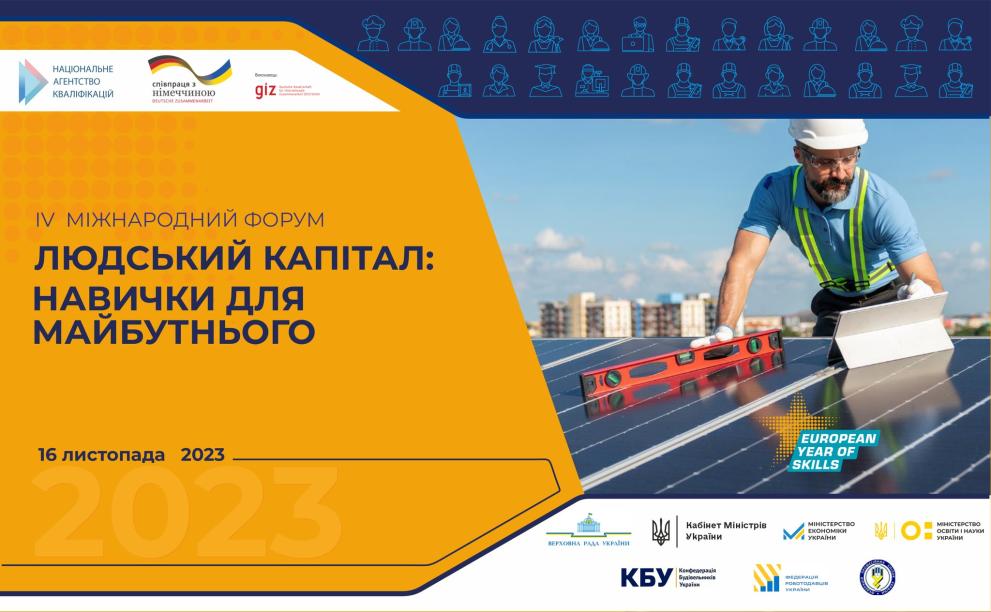
The conference commenced with warm video greetings by Nicolas Schmit, the EU Commissioner for Jobs and Social Rights. Commissioner Schmit reiterated Europe's unwavering support for Ukraine in the face of Russia's military aggression and emphasized the pivotal role of skills in building a socially fair and resilient society.
"To build and rebuild a socially fair and resilient society, we have to start with investing in people. People are at the centre of the European economy and are our most valuable resource. Besides driving innovation, productivity and competitiveness, skills also empower individuals, providing them with the tools they need to secure meaningful and good quality employment and adapt to new challenges."
Commissioner Schmit's message underscored the significance of upskilling and reskilling as the norm, aligning with the ongoing European Year of Skills, where Ukraine actively participates. It also stressed the importance of the recently published comparison report between the Ukrainian and European qualifications frameworks, which can provide a solid basis for future collaboration on the mutual recognition of skills and qualifications.
Skills Integration into EU Systems and The National Qualifications Framework
One of the panels focused on the Ukrainian NQF and the common European qualification space, presented by European Commission expert Mr. Koen Nomden. Discussions centred around adapting Ukraine's regulatory framework, utilizing Europass and its tools, and ensuring collaborative stakeholder efforts to prevent compromising quality during a fast-paced integration process.
A key contribution came from Ms. Pilvi Torsti, Director of the European Training Foundation (ETF), emphasizing the importance of micro-credentials to recognize and validate the skills of Ukrainian refugees. Torsti also echoed the significance of the recent work done to compare Ukrainian and European qualifications. She pointed to the need for a joint action plan to address the recommendations stemming from this comparison, so that Ukrainian qualifications can be referenced and linked to the European Qualifications Framework.
Conclusion
The conference, marked by diverse sessions and influential speakers, signifies a significant stride in Ukraine's efforts to align its skills landscape with European standards. As Ukraine continues its journey towards EU integration, the insights shared, and collaborations formed at “Human Capital 2023: Skills for the Future” will undoubtedly contribute to shaping a skilled, adaptable, and future-ready workforce.
Details
- Publication date
- 1 December 2023
- Author
- Directorate-General for Employment, Social Affairs and Inclusion
